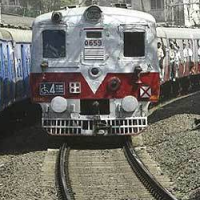Partial Rollback in Train Fare Hike Shows Challenges in Reducing Subsidy Bill
 A commuter train in Mumbai
A commuter train in Mumbai
The Modi administration may have stood its ground in the face of protests by opposition parties against its hike in train fares, but was forced to partially roll back its massive hike in suburban commuter fares after regional ally Shiv Sena warned it could affect public support in a state election later this year.
The partial rollback highlights the political realities facing the Modi administration as it tries to cut subsidies. Yet this climbdown was partly its own fault. While it hiked fares by a respectable 14.2% for long distance trains, suburban fares went up by 100-180%, an jump that was bound to raise the hackles of urban commuters.
With the hike in suburban train fares proving unpopular in Mumbai – where 7.7 million commuters use the city’s train network each day – the government’s decision on Tuesday to freeze these fares has appeased locals ahead of the assembly election in Maharashtra that the BJP-Shiv Sena alliance is expected to win.
"They’ve at least made a start, so the people are not as angry as they were anymore," Shiv Sena leader Sanjay Raut told Reuters.
"We will continue to ask for a reduction in the monthly pass fare as well, and our people in Delhi are speaking with the parliamentary parties on that. We are not planning any protests for now," he said.
The freeze in city commuter fares will reduce the overall savings from last week’s hike from 80 billion rupees to 69 billion rupees.
The new administration has said that subsidies must be cut if it is to lower the budget deficit of 4.5%. The railway subsidy bill alone costs 260 billion rupees ($4.4 billion) annually.
Prime Minister Narendra Modi recently said that he needed to “take some harsh decisions and administer some bitter medicine in order to resuscitate” the economy.
"I have taken over the reins of the country in circumstances when there is nothing left behind by the previous government. They left everything empty. The country's financial health has hit the bottom," Modi said while addressing BJP workers on June 14.
According to Reuters, the process of reducing subsidies that had ballooned under the previous UPA administration remains tricky, with most of these spent on everyday items used by the poor, such as diesel fuel, rice and transport.
"Taking tough decisions and strong measures in the coming one or two years are needed to bring financial discipline which will restore and boost the country's self-confidence," Modi told party cadres.
The administration will have to do its homework well while taking decisions on subsidies so that these do not ignite public disapproval in addition to the expected political opposition.
- Karan Singh
- Top Stories
- Controversies
- Where is the Money Going?
- India and the World
- Appointments and Resignations
- Unusual News
- Latest News
- India College Chain’s Expansion into U.S. Draws Opposition from Massachusetts Officials over Quality of Education
- Milk Shortages in India Tied to Release of New Movies Featuring Nation’s Favorite Stars
- Confusion Swirls around Kashmir Newspaper Ban in Wake of Violent Street Protests
- Polio-Free for 5 Years, India Launches Vaccine Drive after Polio Strain Discovery
- New Aviation Policy Could Increase Service, Lower Ticket Prices






Comments